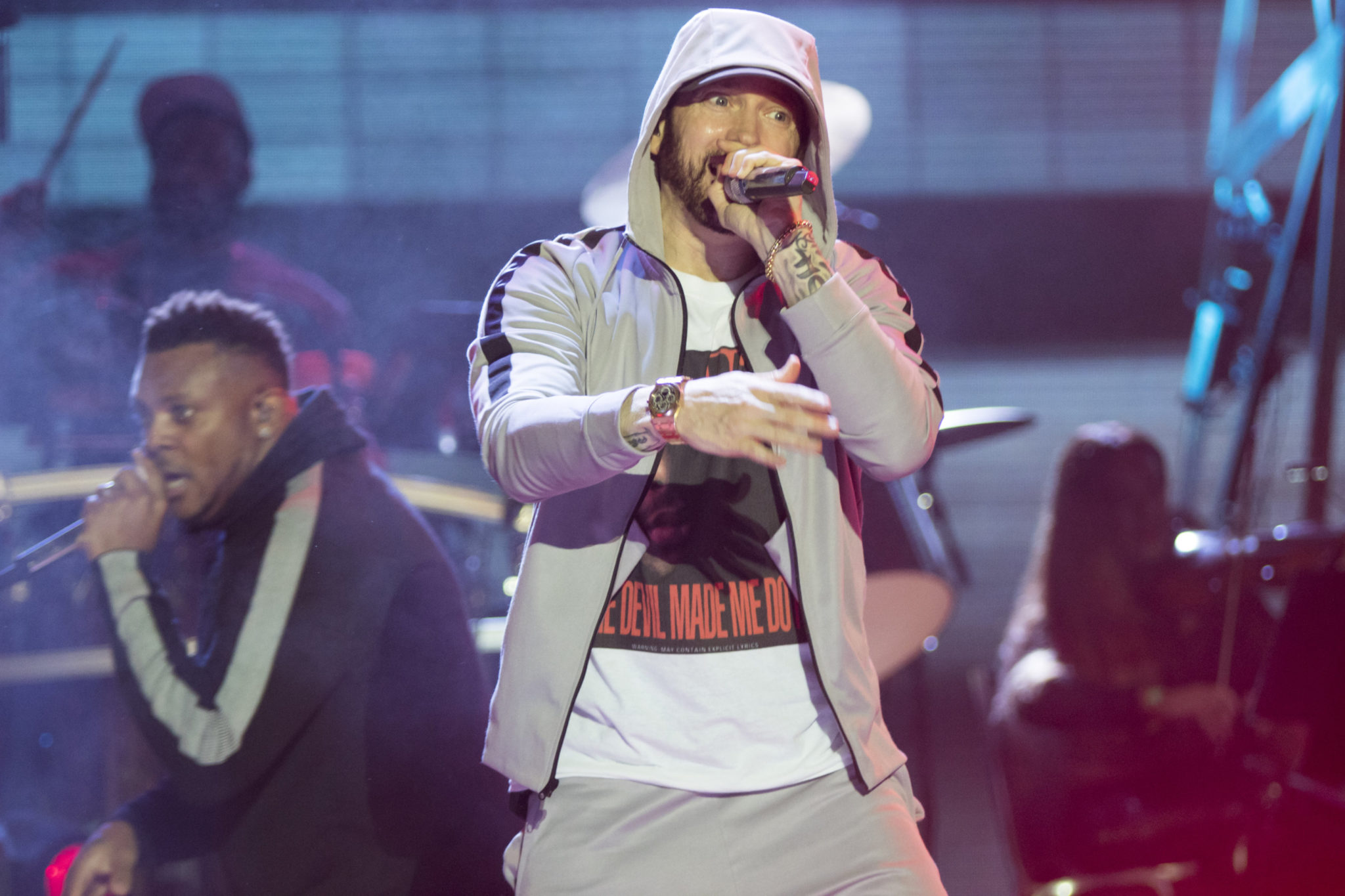On February 14, Eminem filed an opposition to “Real Housewives of Potomac” cast members Gizelle Bryant and Robyn Dixon’s trademark application for their podcast “Reasonably Shady.”
Eminem, a rapper whose real name is Marshall Mathers, has gone by “Slim Shady” since 1996 and has had the term trademarked since the early 2000s. In the opposition filing, he claimed the podcast name “Reasonably Shady” will cause confusion to consumers and “damage” his brand.
Bryant and Dixon, who have been on the Bravo show since it debuted in 2016, filed the application with an intent to begin selling branded products such as water bottles and sweatshirts. The podcast has over five million downloads and a live taping was featured on the most recent season of the show. The podcast was also subject to a scandal when TV producer and “Housewives” franchise paterfamilias Andy Cohen accused Dixon of purposefully sharing new information about her husband’s infidelity on the podcast instead of the show.
This isn’t the first time Eminem has gotten into a legal fight over “Slim Shady.” He previously successfully opposed an application in 2021 by Melissa More and Alan Hoffer for a news site for political and international information named “Slim Shady Politics.”
And Eminem isn’t the only celebrity to get caught up in trademark battles:
Paris Hilton
The OG reality star settled a 2007 lawsuit in 2010 with greeting card company Hallmark over her trademarked catchphrase, “That’s hot.” Hallmark unsuccessfully deployed a free speech defense for a card that depicted Hilton as a waitress saying—you guessed it—“That’s hot.”
50 Cent
The rapper, actor, and gravity boots aficionado got into with Taco Bell over an ad campaign in 2008. Curtis Jackson, whose stage name has been trademarked since 2002, claimed the fast-food chain used it without permission. Both parties agreed to a settlement.
Donald Trump
The former higher education executive and US president had his trademark application for the phrase “Make America Great Again”—previously used by Ronald Reagan while running for president in 1980— approved in 2015. Afterwards, Trump’s legal team made it very clear to CafePress, a site that sells t-shirts and other goods, that there would be a lawsuit if they didn’t stop printing shirts with the slogan. Sure enough, the site stopped.
Kareem Abdul-Jabbar
The UCLA and professional basketball legend, who previously changed his name from Lew Alcindor in accordance with his Muslim faith, sued UCLA and NFL player Karim Abdul-Jabbar, who previously changed his name from Sharmon Shah in accordance with his Muslim faith. The suit argued that that licensed products and endorsements bearing the basketball player’s name were worth millions, and asked a federal judge to halt the sale of merchandise with the football player’s name on it. Ultimately, the two men settled, and the football player changed his legal name to Abdul-Karim al-Jabbar.



















